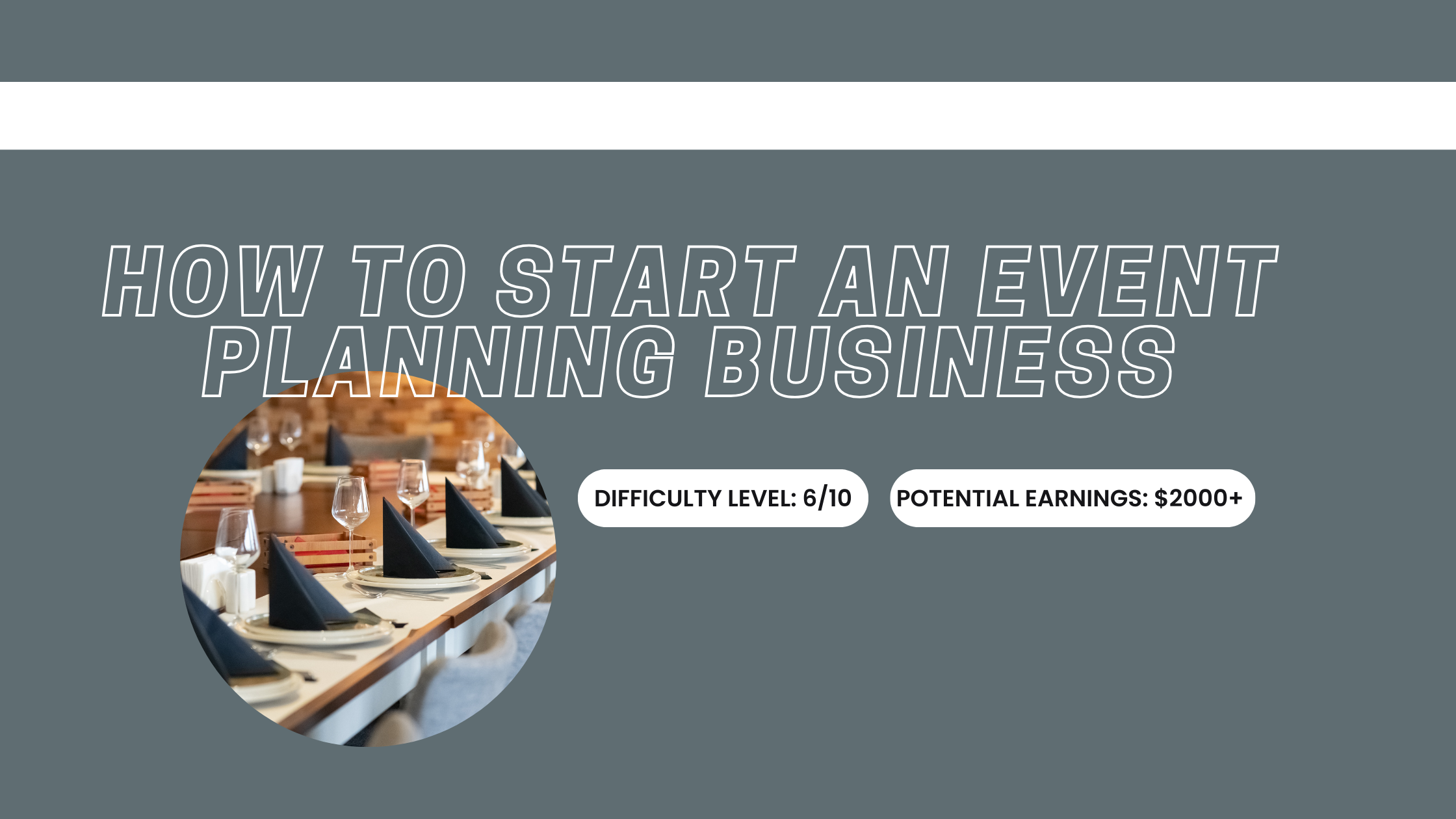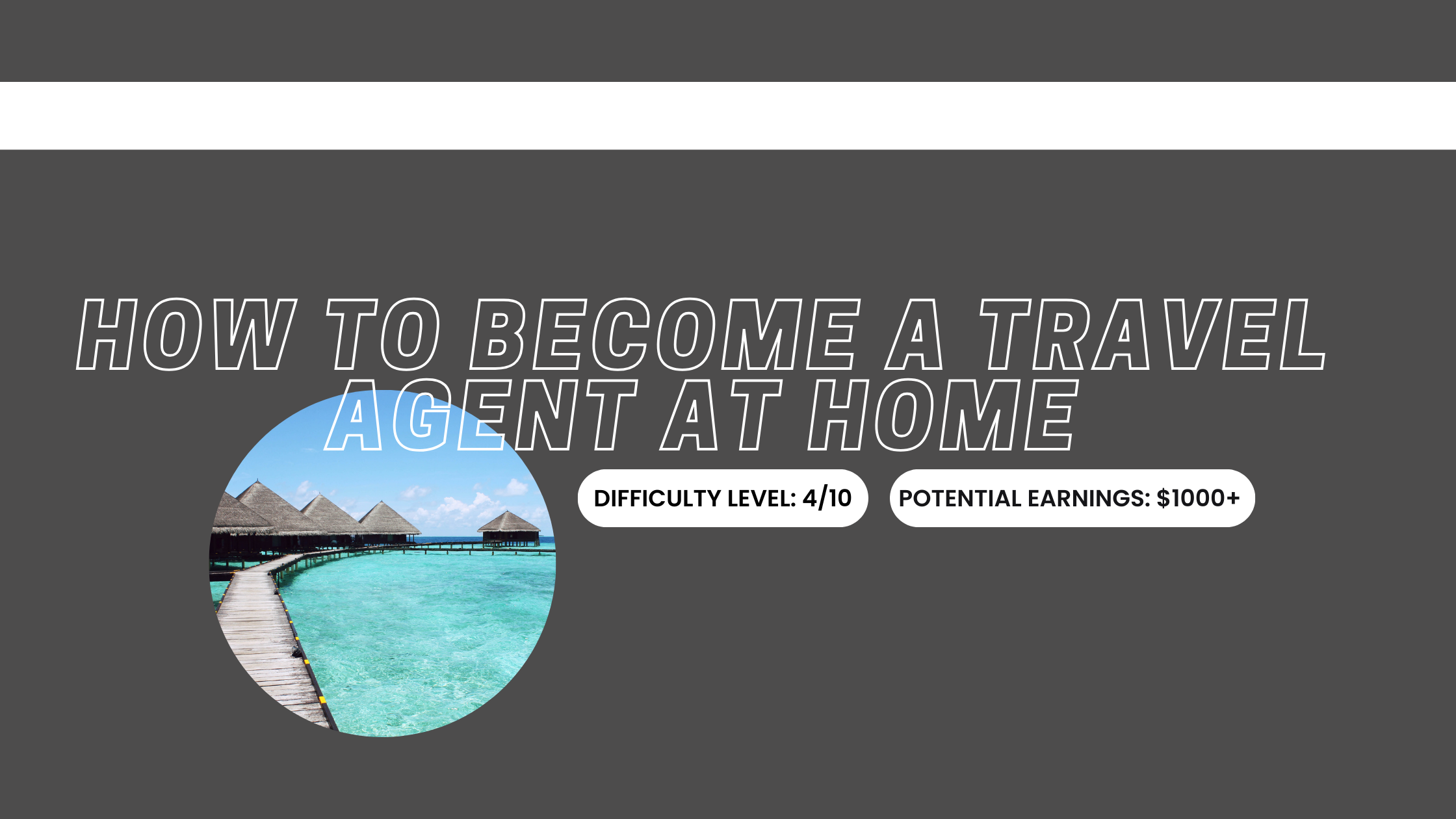How to Become a Travel Agent at Home: Tips & Tricks
How to Become a Travel Agent at Home: Initial Costs
At home travel agent jobs require a moderate time investment but have relatively low startup costs. Starting out with just a computer, internet access, and some basic training, you can be on your way to getting your first client in just a matter of weeks. You should be ready to part with a small amount of money to cover some initial costs. This will pay for any required certification programs, host agency registrations, and marketing tools, which typically cost between $200 and $1,000.
Difficulty
4/10
Weekly Time Commitment
10–30 hours per week
Earnings Per Month
$1,000–$5,000+ depending on bookings and clientele
Is This Side Gig For Me?
If you're wondering how to become a travel agent at home, the first thing to consider is whether this gig suits you. At home travel agent jobs can be a perfect side gig for people who love planning vacations and have strong organizational skills. If you enjoy researching destinations, managing logistics, and helping others create memorable experiences, you’ll likely thrive as an at-home travel agent. However, this gig may not be the best fit for someone who dislikes handling details, managing multiple client requests, or working during peak vacation seasons.
Preparation
Before diving in, research the travel industry to understand the types of trips you’ll specialize in, such as family vacations, luxury getaways, or corporate travel. Consider obtaining a certification, like the Travel Agent Proficiency (TAP) test or other industry-recognized courses. Next, look into host agencies that can provide tools, training, and access to supplier relationships. Finally, set up a workspace with a reliable computer, fast internet, and a phone system.
Execution
Choose Your Travel Niche
Decide on your niche. Will you dish out honeymoon packages, adventure trips, cruises, or family vacations? Picking a niche will help you stand out and attract a certain audience.
Partner with a Host Agency
A host agency provides you with travel suppliers, booking tools and client management software. Research agencies with positive reviews, fair commission splits, and strong training programs are good options.
Get Certified
Get certified to build your credibility and attract clients. Certifications from the Travel Institute and other reputable organizations in the space will increase your marketability.
Set Up Your Business
Get registered, choose a name, and begin building an online presence. Get yourself a website and collate any testimonials you have, then develop your social media profiles to market yourself.
Learn the Booking Tools
Familiarize yourself with Global Distribution Systems (GDS) or other booking platforms provided by your host agency. These tools help you manage reservations efficiently.
Market Your Services
Use social media, email newsletters, and local events to advertise your services. Offer promotional deals or referral bonuses to attract your first clients.
Build Client Relationships
Focus on delivering exceptional service. Follow up after trips to collect feedback and encourage repeat business through loyalty programs or discounts.
Bumps in the Road
Finding Clients
It takes time to attract clients initially. Start with your personal network and offer discounts to build up your client base.
Learning the Tools
Mastering booking software and systems like GDS takes time. Spend some time each week on training and troubleshooting to prevent errors down the line.
Handling Last-Minute Changes
Last minute itinerary changes are common for clients. Keep cool, use your tools effectively & communicate with clients and suppliers to resolve issues quickly.
Conclusion
If you just finished reading this guide and are still wondering how to become a travel agent at home, you should stop worrying and just get started. You have absorbed all the information you need, now it's time to do the work. So make some packages and test them on family and friends. You'll be jet-setting your way to success in no time.
Continue Learning

Event Planning
Start an event planning business by building a portfolio, networking with potential clients, and establishing strong vendor relationships.
